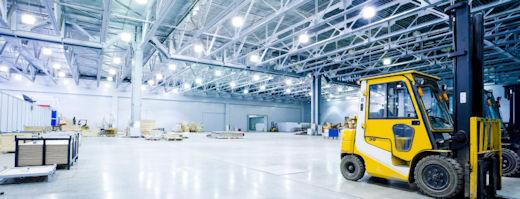Topics: manufacturing, production planning, Implementation, APS, ERP, APS, enterprise resource planning, ERP System, production capacity, APS benefits

Predicting the future of production planning can be difficult; past predictions have included everything from energy-matter converters to a prediction that centralized manufacturing would end by the late 20th century. While absurd theories abound, it’s reasonable to say that the next several years will bring an increased focus on technology, personalization, and advanced planning techniques to the manufacturing industry.
No one disputes that technology will play a huge role in the factory of the future, but there is a lot of controversy over how technology will shape manufacturing facilities. One of the most obvious ways that things will change is through an increased focus on automation. Already, many facilities are upgrading their production lines with equipment that can produce with minimum employee involvement. While this trend began in the 1980s with the auto industry, only recently has the technology become versatile enough that it can be used by just about any factory. Programmable machines are able to be set up within minutes to produce a wide variety of products, making them excellent choices for domestic manufacturers that want to keep labor costs low but quality high. As this technology becomes cheaper and more accessible, factories will rely on these combinations of robots and computer-aided machines to produce diverse goods with high efficiency.
Instead of manually determining plans, software will be able to instantly insert orders into the optimal production schedule, then transmit that schedule directly to the machines on the factory floor. Productions lines will change over to produce different products without the interference of human personnel. It will also be able to automate shipping and sorting functions.
This ability to change over production quickly will also mean that many more products will be able to be customized to meet individual customer demand. For example, instead of choosing among several pre-selected paint colors, an auto buyer would have the ability to create their new car’s unique shade. Software will be able to take that order and directly adjust the sprayer machine on the factory floor to match the customer’s request. The finished product would then be automatically shipped to the dealership. Other facilities could allow customers to adjust everything from the height of a desk to the dimensions of a television screen.
Of course, this will require a sophisticated software system that can not only control the facility equipment, but also interface with other systems that control ordering and shipping. Not only will this software need to be able to precisely control the factory floor, but it will also be responsible for optimizing the production of the manufacturing facility. With so much automation, it will no longer be necessary to track huge numbers of employees, but scheduling maintenance and constraints will become critically important in order for a company to control costs and stay competitive. The fact that so many things are automated will make the smallest differences in manufacturing process have a huge impact in a company’s ability to offer their customers the best price. Factories that can shave even a fraction of a percentage off of their product cost will gain a huge advantage in the industry. Companies that have clung to the older, manual ways of production management will be at a huge disadvantage.
Topics: manufacturing, production planning, Implementation, APS, ERP, APS, enterprise resource planning, ERP System, production capacity, APS benefits
0 Comments
No video selected
Select a video type in the sidebar.







LEAVE A COMMENT